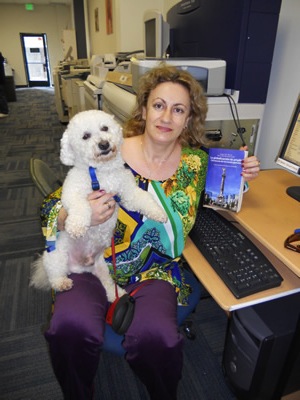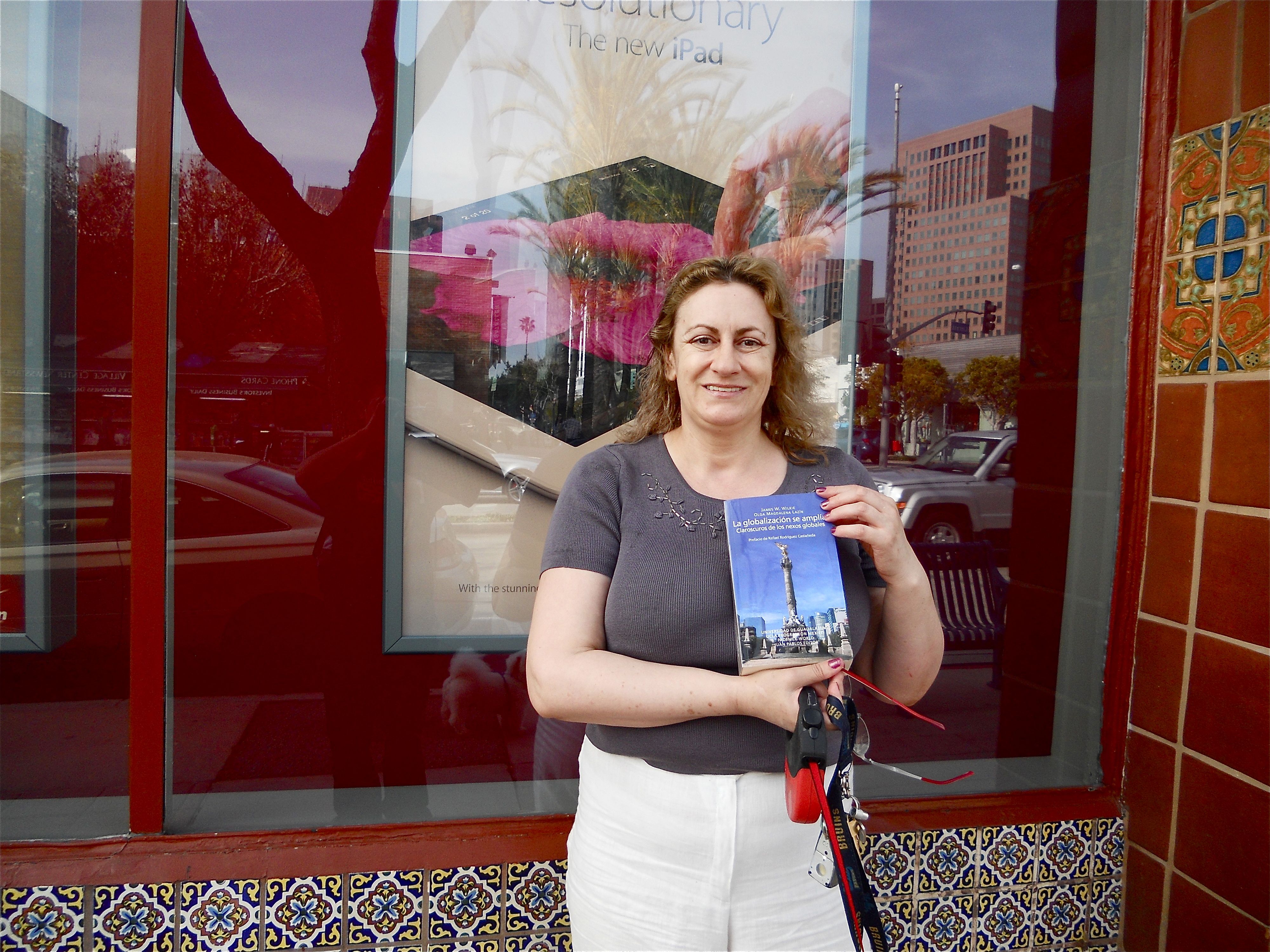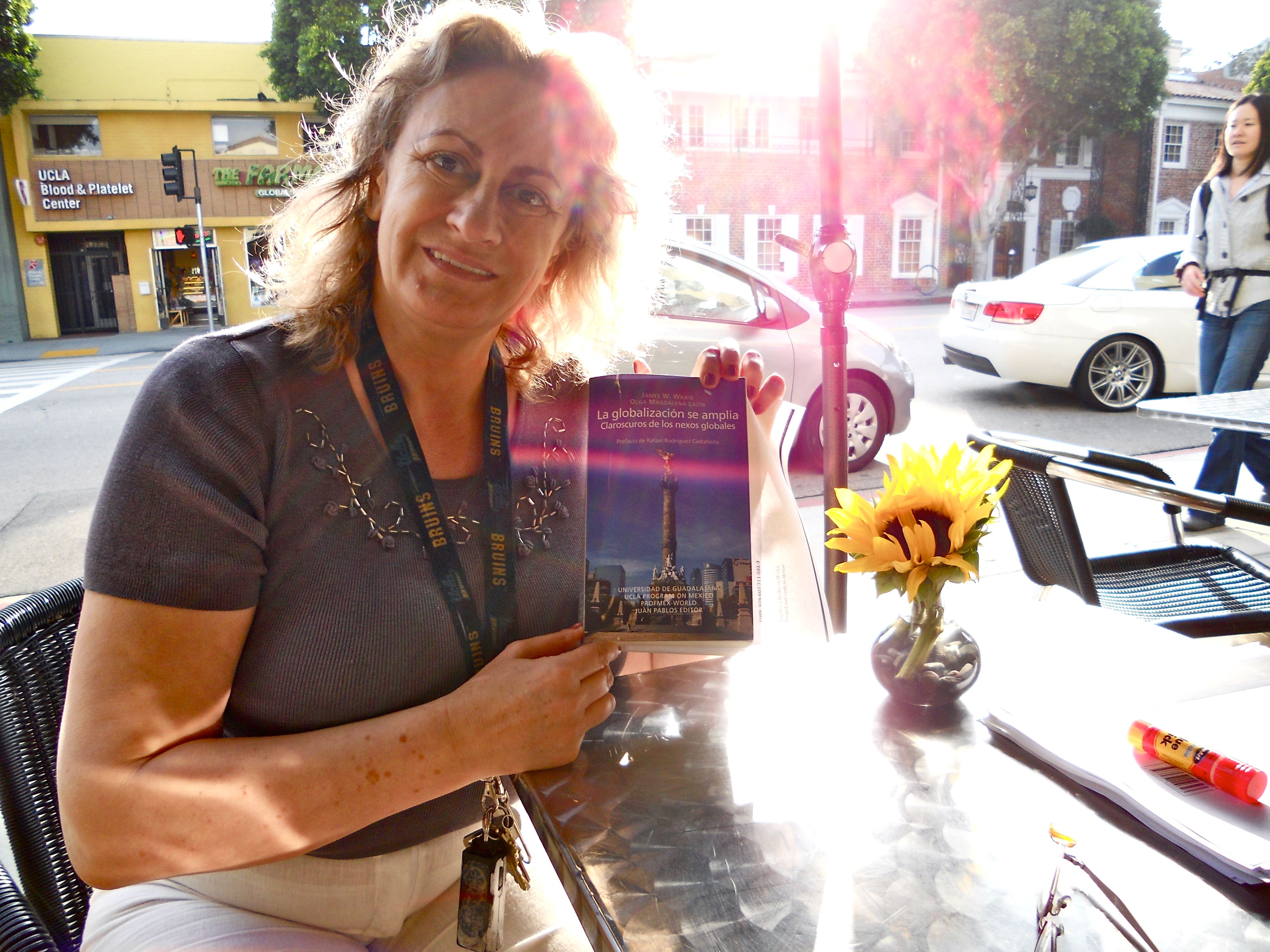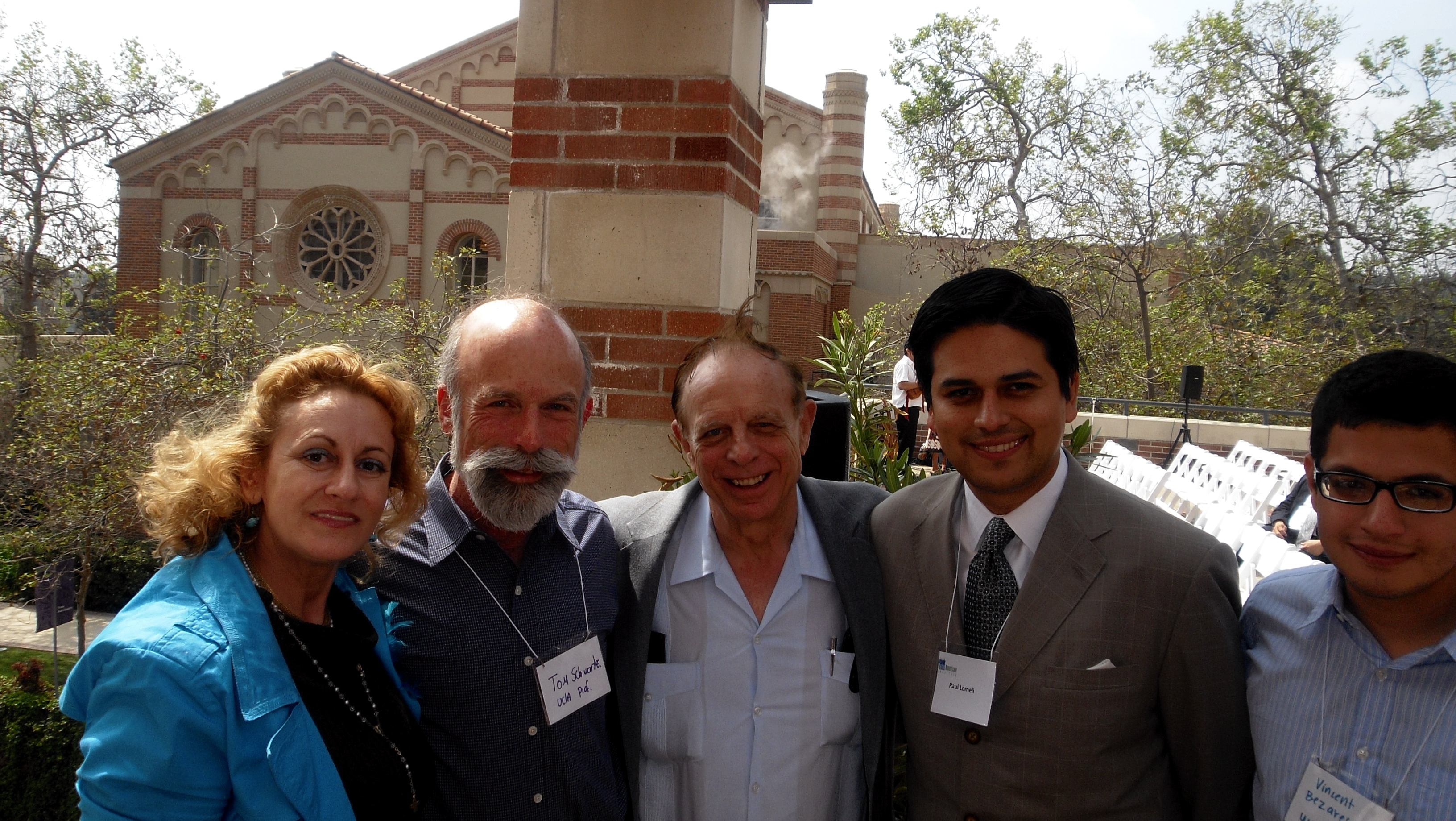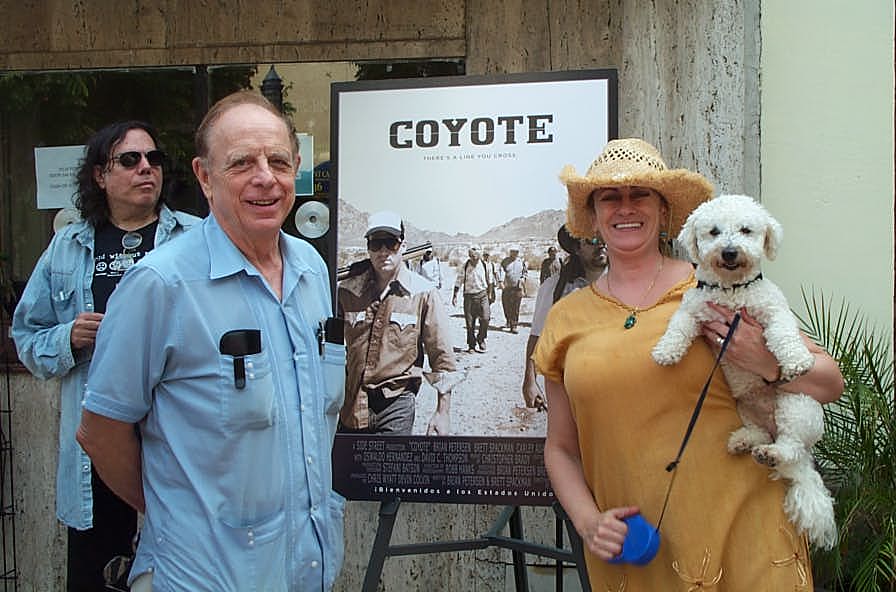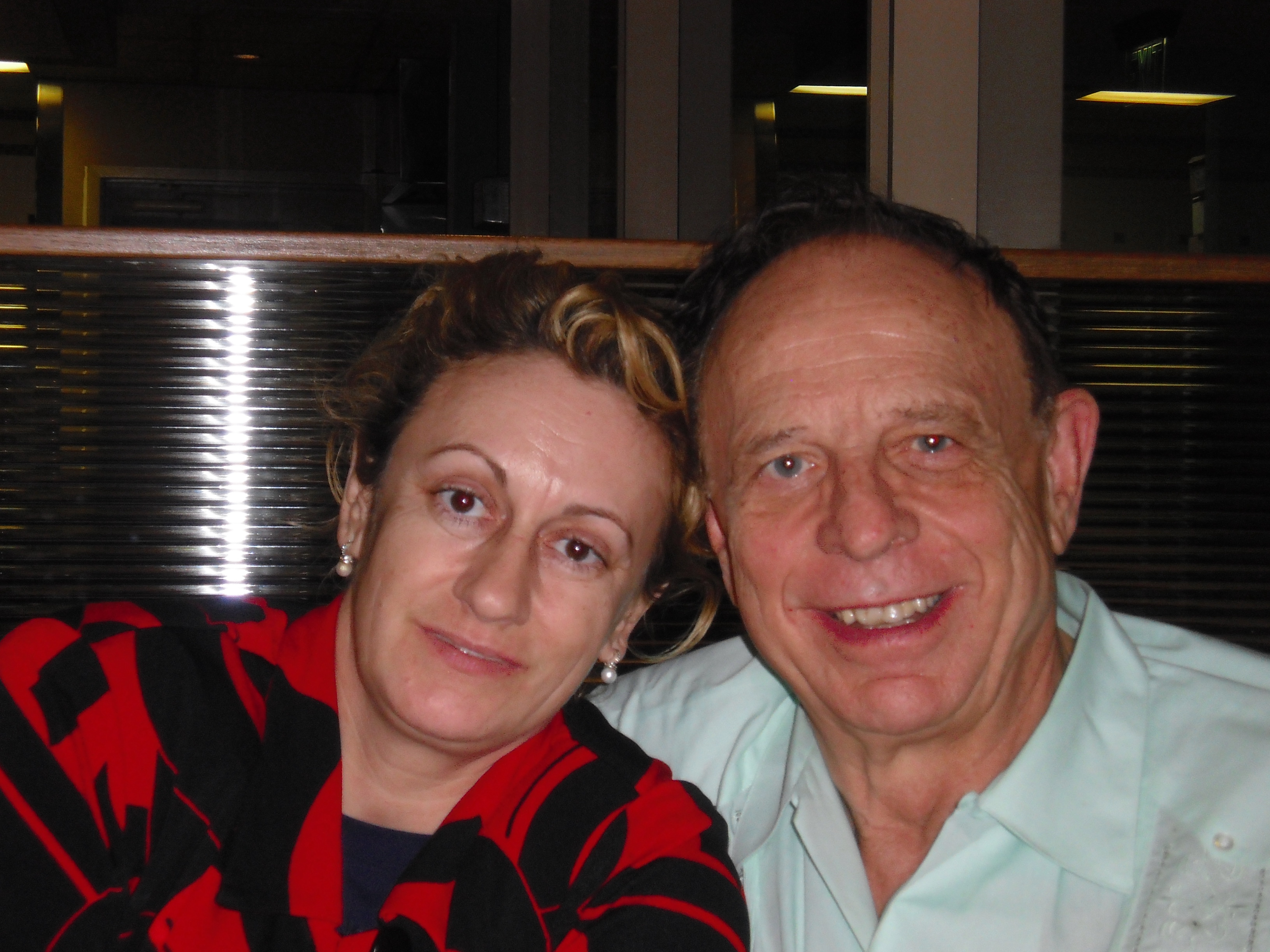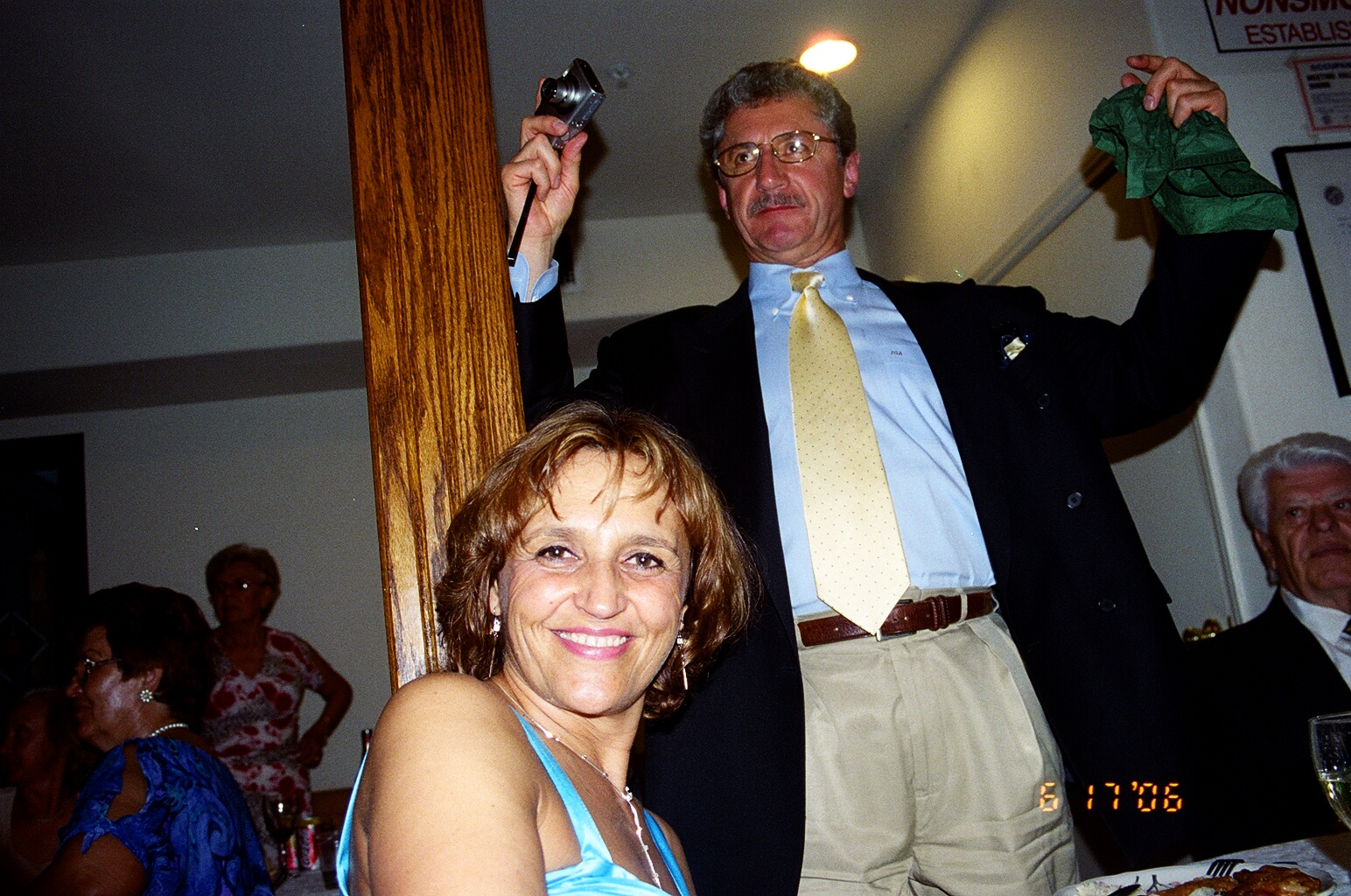I was born in Transylvania, Northern Romania, in a town named Satu M. I grew up like Alice in Wonderland: among intellectual’s children, and also cute, lovely, and many Gypsy children whom I taught the Romanian language, pretty early in life, starting in 1st and second grade. We had a tough life, and our parents were always working ‘til late hours at night. My brother Alex, and I were reading late at night, waiting for mom, Magdalena to turn off the lights, as she continued working at home in accounting. She was compounding the lengths and width of the wooden logs that were heading to Russia year by year. And she let us play all day long to our heart’s content. So unique, and we felt so free exploring nature in Sighet.
In 1973, at age 10 as a fifth grader in Transylvania’s isolated town of Sighet, I had to make a fateful decision about my choice of foreign-language study: Russian or English. The pressure was on us to take up Russian, thus proving that we were all students loyal to the dictator Socialist” Nicole Ceausescu’s “Socialist Government” (read Romanian Communism allied with Moscow), but consciously I detested that system.
Although I wanted to learn English, I did not then how fateful that choice would be until 1991, when at almost 27 years of age, I met Jim Wilkie who had been advised by his brother Richard to include my town of Sighet in his journey to assess the how Eastern Europe was faring after the fall of the “Berlin Wall,” short for the long wall that kept the people of Communist countries locked and unable to escape. But more later about how Jim found me as he sought an English-speaking intellectual and social guide to Eastern Europe.
In the meantime, growing up in Sighet with a population of only 30,000 people, we were proud to recognize Elie Wiesel (born 1928) as our most prominent citizen long before he won the 1986 Nobel Peace Prize. He helped us get past the terrible history of Sighet Communist Prison where “enemies of the state” were confined until “death due to natural cause.”
In my early years I had a hard time understanding how the green and flowered valley of Sighet (elevation 1,000 feet, on the Tisa River at the foot of our forested Carpathian Mountains) could be so beautiful, yet we lived under the terribly cruel eye of the Securitate to protect from the people the wretched Dictator Nicolae Ceausescu. Ceausescu, who ruled from 1965 to his execution in 1989, was the harshest leader of all the countries behind Russia’s Wall against Western Europe. Oddly enough, in the Transylvania of the late 1960s, 1970s and 1980s, supposedly I was living the “Golden Age of Romanian Socialism,” but even to myself as a young student; I could see that the promised “full progress” was clearly a lie. Most adults agreed but feared to speak so bluntly.
Even though the “English-Speaking USA” had been supposedly always threatening to invade Romania, I continued to study English language and literature. That I chose to study English even though the act alone brought suspicion on me because all society was taught to believe since 1945 that we were fighting off the Great Satin USA. America was officially seen as a threat to Romania and it allies under Russia’s COMECON, all of which I became only fully aware as I grew older and had to buy the English Course textbooks on the risky, expensive Black Market.
In the meantime, without rarely granted permission, we were forbidden to meet and visit with foreigners, especially those who spoke English and who wanted to hear from us about Sighet and its nearby wooden hamlets of the Maramures Province, where I have my first memories. The region is ethnically diverse, with a stimulating climate ranging from very hot summers and very cold winters. Geographically, we lived in the valleys and Mountains of Gutinul through which the rivers of Iza and Tisa flow. Geographically, the beautiful forested Tisa River is the natural border with Southern Ukraine.
As folklore has it in the West, vampires are native to Transylvania. We had vampires, werewolves, and wolverines, but all the mythological characters were actually members of the Communist Party, which everyone had to join--except for me because with my knowledge, I was considered a security risk!
Fortunately, when in 1982 I entered the University Babes Boyali, in Cluj-Napoca, to earn my M.A. in 1990, for my sociology classes, I decided to conduct my field research project into the rural life of the North of Romania, recording the folklore (especially myths) invented and passed down by rural folks (including small merchants, farmers, fisherman, loggers) had had used that lore to help them survive for centuries.
Further, much of my research conducted among the outlying farmers, delved deeply into Transylvania Folklore, which prepared me well to understand Communist Party Lore.
Thus, for the second time, my fateful choice of a field research project had further prepared me, unknowingly, for my future with Jim Wilkie.
Once I had been admitted to the Babes Bolyai University, which was called “the heart and brain of Transylvania,” I also further expanded and deepened deep studies in American language and literature. Also I studied Romanian language and literature in the Department of Philology. The Bolyai University Is considered the best University in Transylvania.
Upon beginning my mentoring for other students, I was happy to find a sense of freedom. Reading and writing comprehension were my forté during my four years at Cluj. I had always dreamt of being a professor and a writer and seemed to be off to a great start.
But I soon realized that our professors opened the day by reading the mounds of new Decrees just signed by Ceausescu. Thus, I began laughing, and other students join me in mocking the wooden language of Central Planning’s attempt to befuddle us with words from a wooden language, totally bent toward twisting our brains into confused submission. Professors and Securitate officers were acting as sweaty bureaucrats trying to teach us how to sharpen our mental images . Not one professor asked us, “What do each of you really think of all this Ceausescu propaganda of decrees harming the educational process?”
Professors had their favorite students and made sure they pointed this out in class, stifling any competition as they show openly their favoritism or nepotism.
When I reached the age of 22 in 1985, I started to be argumentative, criticizing professors, especially the history professor who only knew only the History of the Romanian Communist Party.
Further, as a woman in academia, I began to resent being forced to do the military service. The Russians, having been directing Romanian politicians since 1945, pressured the Romanians to dig useless trenches as well as learn to disassemble and assemble the AK47!
The atmosphere was dreadful in classes. Restrictions were plentiful and absurd. Speech was not free; one couldn’t discuss issues freely in class, or make any real analysis or debate. One had to regurgitate what the professors were telling us. Modern economics led by and read whatever was there in the old books stacked in the communist library. Until I escaped Romania in 1992, I learned that the so-called economics classes we took taught nothing about money, credit, and such terms as GDP. The Marxian economics involved only fuzzy nonsensical slogans such as “We Romanians have to fight-off the ‘running dogs of capitalism,” without the word “capitalism” ever being defined except in unrealistic theory laced with epithets.
Even as an English major, I could not speak with to foreigners in English --answering one question was a crime, according to the tendentious Security Decrees. Abortion was a crime punishable for up to 20 years in prison. Doctors performing it ended up in jail, and so did the pregnant women. Punishments were ridiculous—the Anti-Abortion Law lasted for 40 years, until 1990.
Furthermore if my uncle from Canada visited us, we were all under surveillance, the entire family. Even today, in 2016 one has to report to the police to declare if any visitor of family comes from the USA (or Canada, for some bizarre security reason). Well after 25 years, not much has changed in poor Romania.
THE INFLUENCE OF RECENT ROMANIAN HISTORY
In the meantime, the History of Transylvania weighed heavily on population of Romania, with constant change in the emerging political map always have left “citizens” always lost about who was really in charge.
Thus, Transylvania was originally part of the Dacia Kingdom between 82 BC until the Roman conquest in 106 AD. The capital of Dacia was destroyed by the Romans, so that a new as capital would serve the Roman Province of Dacia, which lasted until 350 AD, by which time the Romans felt so hated that it behooved them withdraw back to Rome.
During the late 9th century, western Transylvania was conquered by the Hungarian Army to later become part of the Kingdom of Hungary and in 1570 to devolve into the Principality of Transylvania. During most of the 16th and 17th centuries, the Principality became an Ottoman Empire vassal state, confusingly also governed by the Habsburg Empire. After 1711 Transylvania was consolidated solely into the Hapsburg Empire and Transylvanian princes were replaced with Habsburg imperial governors. After 1867, Transylvania ceased to have separate status and was incorporated into the Kingdom of Hungary as part of the Austro-Hungarian Empire. After World War I, Transylvania reverted in 1918 to be part of Romania. In 1940 Northern Transylvania again became governed by Hungary and then Germany, but Romanian queen Maria successfully reclaimed it after the end of World War II.
The year 1940 was important for Romania because if was seized for its oil by Nazi Germany (1940-1944), “liberated” by the “Soviet Union” (1944-1947), and finally “re-liberated” to become the Popular republic of Romania (under USSR remote control), as the Cold War was beginning to freeze the Iron Curtain into place.
At the end of World War II while the USSR and its Red Army were the occupying powers in all Romania, in 1947 Romania forcibly and ironically became a “People’s Republic” (1947–1989), after the rise of the Iron Curtain.
The first “president,” Gheorghiu-Dej (1947) ruled as puppet of Moscow, but when he died, his Secretary General of the Communist Party of Romania, Nicolae Ceausescu, was elected as the second “president” (1965-1989), shifting his savage dictatorship into a harsher Romanian “Gulag” than known in the USSR.
For two decades I neither understood the dimensions of tragic history of Transylvania, nor did I understand that I would have to escape the Gulag of Romania by the “skin of my teeth.”
For peoples of the world Transylvania seems to be a far away place, where most people know the werewolves and vampires have been “seen” to in the imagination of Transylvanians, whose beliefs was soaked in mystical folklore. Even today it is hardly possible to have a rational conversation with most the Transylvanian folk on any subject without recourse to try to understand where their distorted imagination has befuddled them.
The population has consisted of Romanians, Hungarians, Germans, and some Ukrainians. These languages are still being spoken in Romania’s Maramures province, but because I always liked and loved the Romanian language, I decided to become a Professor of Romanian Language and Literature.
MY BACKDROP TO THE FALL OF CEAUSESCU
I later told Jim how I had been admitted in 1982 to the Babes-Bolyai University, in Cluj-Napoca at the heart of Transylvania, I focused especially on Linguistics. Unfortunately, there I found that the professors, who were under the control of sweaty Securitate officers, had to read dozens of new Decrees issued every day as they sought to control every one of our daily actions—all in the name of protecting the Ceausescu government—which was selling the country’s food supplies to Russia in order to pay down Roman’s official debt at our experts. Those Securitate officers ate well and ominously watched us virtually starve. They said, be calm like your parents in the face of starvation.
Thus, I furiously called out in my classes that our very existence was being compromised by Ceausescu's abandonment of the population, which was ordered to, as Lenin famously said, “work, work, and work.”
To protect myself as best I could, I turned to humor, seeking to ridicule Ceausescu’s “national paradise.” But when I encouraged my classmates to laugh at the propaganda embedded in the wooden language of the national bureaucracy, I soon fell under the heavy scrutiny of university authorities, who were furious that I trying to expose the fact that all classes had been organized to befuddle the student body into confused submission. Indeed, each professor had favorite students to help drown out legitimate questions and stifle any competing analysis—the university lived under nepotism, favoritism, the threat of rape (virtual and real) by the Securitate officers, and open bribery--choose your garden variety.
MY 1986 FLIGHT FROM ROMANIA BACKFIRES
By 1986, at age 23, I had decided to flee Romania—an illegal act because Ceausescu did not want anyone (especially women of child-bearing age) to escape his plan to building his “ideal socialist industries” on farms and ranches as well as in the cities. In June I made my way to the border of Yugoslavia and paid a smuggler to evade the Romanian security forces that were preventing the “nations workers” from escaping. The smuggler, who took me across the border, turned out to be working for Romanian Border Police. Thus, soon after crossing into Yugoslavia, he turned his wagon around and I was again in Romania again when I realized what had happened too late. I had been “sold” to Ceausescu’s minions for a wagonload of salt.
That failed escape from Romania led me to a 10-month prison sentence in Timisoara Prison, wherein the block cells were maintained so cold (supposedly to eliminate bacteria and viruses) that it made all of us inmates sick with the cold and the flu.
Cell bed blankets were less warm than one Kleenex tissue. Moreover there were no pillow, and the concrete slab where inmates slept was a back-breaker. The lights were on 24 hours a day, blinding all of us, and there was constant observation. Every hour one was awakened to be counted for, and sneaking up on people, under the guise of watching out for suicides. But everyone could be clearly seen by the guards, and there was no need to sleep-deprive inmates. There was also someone in the higher echelon ripping off the food budget to siphon money to themselves while serving inmates only baby carrots and spicy beans.
Almost every family in Romanian civil society had at least one member who had been imprisoned for trying to open the political system by denouncing the Ceausescu dictatorship. These inmates were openly called “Political Prisoners,” and I was one of them.
Political Prisoners were not permitted to work outside the prison walls in the fields because our crime had been the political decision to repudiate Ceausescu’s “fantastic system.”
OUT OF PRISON IN 1987 AND OPEN TO CHANGE IN THE AIR
Once free in 1987, I could return to my University to finally complete my M.A. in 1990.
Further in 1987, at the age of 24, I met the Family patriarch Nicolae Pipas, who directed for the Communist government the walled Regional Art Museum in a quiet part of Sighet. Being one of the few highly educated persons who spoke English in the region, I began to serve as interpreter/guide to visiting foreign Ambassadors permitted to travel in Romania. They wanted to see the Museum with its magnificent collection of paintings, sculptures, and rare historical pottery and coins. Thus, I soon found myself translating for visiting English-Speaking Ambassadors from many countries who wished to know Transylvania, especially my village Sighet and its Merry Cemetery famous worldwide for it tombstones in the form of wood sculpture of the butcher, the baker, candlestick maker, and all professions.
Although my first languages were Romanian and Hungarian, I could also translate into French and Italian. Indeed at that time I was teaching Latin in the Rural School System of my Maramures Province.
By 1989, Ceausescu realized that his end was near, and he sought to gain support by pardoning his political prisoners (such as myself) who had tried to escape the horrendous conditions in the country. Hence, university students and some labor unions joined forces and quite quickly after the fall of the Berlin Wall forced Ceausescu and his draconian wife Elena to flee. They were caught and executed on Christmas Day, 1989, by the military that at the last moment joined the Revolution.
As my friends and I (along with most of the population) cheered the fall of the failed, rotten Romanian “dictatorship of the proletariat,” my dear mother acted differently. She was so confused by the propaganda of the only “leader” she knew much about that she wept for Ceausescu, not fully realizing that he was the one who had wrongly had be arrested and put me in prison.
With Ceausescu gone, in 1990 I was able to secure a passport to ready myself to leave Romania by gaining visas for Germany and France. The question remained, how to get there by land without a visa to Austria—my region had no air connection to the outside world.
MY FATEFUL 1991 MEETING IN SIGHET WITH JIM WILKIE
Almost age 27 in 1991, I was in the right place at the right time when UCLA Professor Jim Wilkie arrived in Sighet September 17th with Professor James Platler (his friend and driver). They came as part of their trip to assess the impact of the 1989 Fall of Iron Curtain--which had imprisoned all Romanians and made it a crime to try to escape from Romania. The two Americans had already visited “East” Germany, Czech, and Slovakia (soon to break their union, each becoming independent), and Poland, where English speakers could provide guidance.
In Romania the UCLA Team found itself at a loss as few of the people who they encountered could speak English and none of them could analyze or articulate how the System of Government and society functioned before and after 1989.
When we met, Jim immediately contracted with me to advise them as well as guide them through Eastern Europe. They were pleased to hear the my outline of Transylvanian and Romanian history (see above), with which I explained how constant national boundary change meant that Transylvanians and Romanians were never able to develop either honest civil government or active civic society. Little did I know that the concepts of “Civic” and “Civil” Society were of utmost importance to Jim? As I would find out later, Jim and I had been conducting compatible research for years and would lead me to (A) my PHD Dissertation and (B send C) two books written with Jim. All these works distinguish between the concepts of Civil Society (which represents national and local governmental activity and Civic Society (which involves active private citizens (who organize non- govermental initiatives to develop model projects beyond the ability of official bureaucrats to even comprehend, including the influence needed to monitor and expose the failures and successes of governmental activity).
But before we left September 18th to visit Romania and Hungary, I had to find a substitute for my new class teaching American English and History in Sighet—I left a friend, Johnny Popescu, to become my permanent substitute. Only then could our newly expanded Team set off under my guidance.
Thus, we set out on September 18, 1991, to visit one of the most socially and economically interesting and beautiful parts of Romania by going up thought the green forested Carpathian Mountains via the beautiful Prislop Pass, stopping to visit small farming families in their folkloric clothing of which they were justifiably proud to wear on a daily basis. Farther east in Romania, on the scenic roads, we visited the monasteries of Moldova, the town of Cimpulung Moldovenesc, Suceava, and then the Monasteries in Sucevita and Agapia. The gorgeous forested mountain road eventually led to Lacul Rosu and the lake country. Then we took the long scenic mountain road to Cluj Napoca to visit my University.
As I briefed Jim about Romania, he was briefing me about factors in comparing national economies. For example, he told me about how he had reunited in Prague on September 15th with Richard Beset, his former UCLA student and friend, to hear about his role in London as Manger of Deutsche Bank’s New Accounts in Russia and Eastern Europe. Richard had become famous for inviting Banking Officials and national Treasury Ministries to deposit their financial reserves on deposit in his bank in London. But because those who did not understand anything about “interest payment on deposited funds, they did not ask for nor did they gain any interest payments. Also, because most Western Banks were not sure that these new “capitalists” could be “fully trusted” for correct management of their deposits, his Deutsche Bank collected large fees to keep the Eastern Europe reserves safe. This was all very eye opening for me.
Jim and I had realized early on that we had a close affinity as we analyzed the situation of Romania, and he said, “Call me Jim.” (In contrast I called Professor James Platler “JP.”) As we traveled to observe the situation of the people in different parts of the country, Jim and I formed a deep bond of observing and analyzing; thus both of realized this brief interlude had to continue for the long term in order to achieve our goals.
NEXT STOPS, BUDAPEST, SALZBURG, MUNICH, BORDEAUX (FOR ME), AND LOS ANGELES (FOR JIM)
As a Romanian, I had the right to enter Hungary, and we did so bypassing the miles of vehicles waiting to cross the border for the long drive to Budapest. There JP finally relaxed after the long drives and often poor hotels and hotels—he said that he finally found unbroken civilization again.
Once we arrived in Budapest, JP, who had told Jim privately that from the outset of our trip that he thought that I was a “Spy” (planted on us by the Romanian Securitate to monitor our many “foreign” inquiries during our travel through Romania’s north country), announced that his concern about me had vanished as we realized the extent of my knowledge and research abilities. In his mind, I had to be a Spy because I had obtained access to special private dining rooms and quarter in some fine hotels, as well as invitations for wonderful lunches at some Monasteries, where miraculously I made immediate friends with each Mother Superior. But by the time we reached Budapest, he realized that at my University I had learned the Elite skills needed to survive safely and comfortably in Eastern Europe.
My problem was to enter Austria, where I had no visa. But Jim passed his UCLA business card through to the Consul General of Austria in Budapest, and quickly we found ourselves whisked from the back of the long line to the front and right into a meeting with the Consul General himself. He was pleased to hear about the research of our UCLA Team, but said that I did have a visa. Jim then told them that I only needed a three-day transit visa to reach Germany, the visa for which he could see in my passport.
With entry to Austria solved, we were on the road to the Hotel Kobentzl and Graz, which overlook Salzburg, all the way analyzing the comparative economic and social situations of Austria, Hungary, and Romania.
We spent most of our time down the mountain from Kobentzl in the valley, before returning to our sweeping Hotel view of Salzburg City. Meanwhile I was deepening my questions about capital is leveraged to undertake big private projects. As we took photos over from on high looking down on the many bridges of Salzburg and Jim was explaining how the developed world operated by using finances, credit, and interest to help economies grow.
Finally we left Salzburg to enter Germany and Munich, where our quick look into Oktoberfest found us among nasty drunken louts each of whom seemingly had hand four hands: one to chug-a-lug beer; one to smoke foul smelling cigarettes; one to quaff horrible-bleeding-raw sausages; and one to punch someone in the face. From what we saw, Oktoberfest was a place for nasty males seeking to “get smashed on beer” and then smash another male to break his nose. Thus, we fled for our lives as the brutes began to threaten anyone who looked at them.
Then on September 30th, I took the plane to from Munich to Paris to take a bus to Bordeaux to meet the family, which had invited me to France.
Jim (and JP) also left the same day for Jim to arrive in time to go from the airplane to open and begin teaching his Fall Quarter class at UCLA. But he promised to call daily and return to join me again in ten weeks.
In the meantime, I made a trip to Paris to request political asylum in France, but a grey-faced judge rejected my request, saying that the petitioner must file with the help of a lawyer.
To complicate matters in Bordeaux, the French Security Agent there was investigating me, a lone woman, as a possible SPY sent by Romania to “monitor activities at the Port of Bordeaux. When he told that, if I pleased him in unmentionable ways, he would not deport me to Romania but arrange my legal status in France, I immediately told Jim on his next telephone call.
To resolve our problem, Jim called his Paris friend Gérard Chaliand, a former visiting professor at UCLA, whose real job involved traveling the world for French Security to report on his professorial travels that took him to all continents. Gérard immediately called French Security to report on the illegal approach to me by their Agent in Bordeaux. That same day the Agent came to apologize profusely to me in the best manner that he could muster in his pitiful condition. He begged me not to have him fired for his proposition to me. I could see him looking at me in truly puzzled way that implicitly said: “Who are you? How did I make such a grave mistake in deciding that you, a lone Romanian women could not have any power to reach my bosses in Paris?” I took pity on him and told him that if he minded manners and watched from affair to be sure that I was always safe, he would not be fired.
JIM RETURNS TO EUROPE DECEMBER, 1991:
HIS PLAN FOR ADVISING EASTERN EUROPEAN CIVIC SOCIETY ABOUT HOW TO GAIN GRANTS FROM U.S. FOUNDATIONS, WHICH HOLD THE WORLD’S LARGEST POOL OF NGO DEVELOPMENT FUNDS
Even though it was December 11, 1991, when Jim returned, France was in the midst what some in America call an “Indian Fall,” warm with colorful fall leaves still on the trees. It was a beautifully bright “fall day” when we left Bordeaux the next day to spend some days visiting the Loire River with its many castles and incredible views.
Even during our photography of the Loire region, Jim began to outline his New Plan (now our plan) to wit:
PROFMEX Plan to Help Eastern European “Foundations” Become legally eligible to gain grants from U.S. Tax Exempt Foundations following Jim’s “U.S.-Mexico Model for Philanthropy.”
Indeed, Jim told me that recently when he had been in Mexico City, he received an invitation to meet with Manuel Alonso Muñoz, Executive Director of Mexico’s National Lottery, who when he heard about Jim’s U.S.-Mexico Model, invited him to meet at the Lottery’s historically famous ornate building. After an extended briefing by Jim, Manuel told him that he had already called his own good friend Ronald G. Hellman, Professor of Sociology in the Graduate School at the City University of New York, to ask him for an evaluation of Jim and his Mexico-U.S. Model for Philanthropy. Ironically, it was only then when he realized that Ron was (and is today) Jim’s PROFMEX Vice-President for Strategic Planning. With that news and Jim’s stellar briefing, Lic. Alonso asked if the Lottery could make a series of generous grants to PROFMEX in order to help fund the expansion of Jim’s Model to Eastern Europe, putting Mexico into an innovative new light.
Manuel Alonso was appreciative of the fact that Jim, while serving as Consultant to the U.S. Council on Foundations, had become involved since 1990 with his Model for helping Mexican Foundations (including, for example, charities, human rights organizations, hospitals, universities, biospheres, etc.) to re-write their constitution and by-laws to be compatible with the U.S. tax requirement that they mirror U.S. Not-for-Private Profit Organizations (NPPOs).
The question of “mirroring” involved Jim’s explanation that:
As NPPOs, U.S. Foundations are legally responsible for controlling expenditure of funds granted to organizations that do not mirror the U.S. foundations do not want to be involved in the day-to-day activities of its grantees. Indeed, “ they want to transfer “expenditure responsibility” (including misuse or illegal use of grant funds) to the recipient foundation to which they grant funds but can only do so if the grant recipient organization is deemed to have an “equivalent” legal structure to that of the U.S. donor foundation.
Here is the background, according to Jim: “In order to facilitate the U.S. philanthropic activity needed during the 1970s and 1980s to help speed world development, the U.S. Secretary of Treasury and the IRS formulated provisions that resulted in changing and/or interpreting the Internal Revenue Code (IRC) to freely permit U.S. foundations to grant funds abroad, if they meet the following special proviso:
U.S. NPPOs can themselves make a legal “determination” that the foreign organization receiving the U.S. grant be “determined” to be “equivalent” to an NPPO described in Section 501(c)(3) of the U.S. Internal Revenue Code.”
Further, Jim pointed out that, “while this proviso has worked well for big U.S. grant-making foundations that place costly offices and staff around the world (such as Rockefeller and Ford Foundations), it has worked less well for foundations that have had to send their lawyers to meet with their legal counterparts in prospective ‘equivalent organizations, the legal cost of making such a determination often reaching $25,000 [or, by 2016, much, much more] for each new organization to receive funds from the U.S. NPPO. If that determination is favorable, the U.S. NPPO can transfer funds to the equivalent organization, just as it can to any other approved U.S. NPPO, and along with the transfer of funds to the recipient organization goes the transfer of responsibility over how the funds are spent.”
Transfer of ‘Expenditure Responsibility’ from the U.S. Donor NPPO to the Foreign Recipient NPPO.
The ability of U.S. NPPOs to avoid costly expenditure responsibility, as Jim told, is one of the factors that have helped make American grant-making foundations so important in the world. Thus, U.S. NPPOs have been enabled to avoid becoming ensnarled in accounting processes and audits, which are better done by the foreign organization that receives and administers the U.S. NPPO grant of funds.
In this manner, said Jim, the U.S. NPPO is free to focus its energy on evaluating the substance of its grant programs. The ability of grant-making foundations to transfer Expenditure Responsibility to other NPPOs is the main reason that they generally prefer (and require) that their funds be granted only to approved organizations rather than to individuals or to non-approved organizations.
The above views, Jim said, do not mean that U.S. NPPOs are unable to grant funds to an organization that is not equivalent to a U.S. NPPO (or make grants to individual scholars, artists, or writers either at home or abroad), but to do so adds a complication to the grant-making process. Rather than passing on the Expenditure Responsibility (as the U.S. NPPO does when it makes grants to another NPPO or U.S. equivalent), the Expenditure Responsibility remains with the donor NPPO when it makes a grant to an organization that is not an NPPO (or its U.S. equivalent) or to an individual.
In the unlikely case where the donor NPPO retains Expenditure Responsibility, then, Jim told m in my interview with him on September 17, 1991, the donor foundation has to concern itself with costly financial oversight involved, which may problematic whether of in or outside the USA.
ON TO PARIS AND THE WORLD TO MEET WITH NPPO LEADERS ABOUT NEW FOUNDATIONS
Jim and I arrived in Paris on December 15, 1991, to meet with Jim’s contacts at the American Embassy, who heard about our research and suggested that Jim meet also with their counterparts at the U.S. Embassy in Mexico City. They agreed to help begin to our new Plan to expand to Eastern Europe and Russia Jim’s successful Model for Tax-Free Flow of Nonprofit Funds, the example being what he negotiated (with the U.S. Council on Foundations and the U.S. and Mexican Treasury Departments), as analyzed above.
It is important for me to say here that George Soros and his decentralized donations to his 41 semi-autonomous “national foundations” (exemplified in Romania, Hungary, and Russia) have been built following the IRS proviso and regulations discussed above. Also, Soros’ “National Foundations” require that national Government charter the independent role as NGOs.
In contrast, the flowering of thousands of independent “Foundations” in Eastern Europe since 1989 has grown from groups looking for funds from the many U.S. Foundations that do not have the Soros/New York link with its Foundations in many nations, all of which operate in Soros’ closed loop. Few of these new Foundations have the Soros knowledge and financial resources to set up the By-Laws and Legal Status needed for the thousands Foundations desiring to tap into funding by U.S. Foundations. However, since 2013, Soros’ has organized an office to work with shared Global Funds (for food, migration, etc.) outside the non-Soros frameworks to help poor areas and countries to stave off crises.
Before we left Paris on December 19, 1991, we met with Gérard Chaliand to personally thank him for having made the Bordeaux Security agent reexamine his whole approach to his life.
Further, with Gérard, we worked out a plan to arrange for me to become a U.S. resident and obtain U.S. citizenship nine years after my arrival in Los Angeles, October 1992. He recommended that my case by handled in In Los Angeles by one of America’s most knowledgeable and effective Migration Attorneys—Cynthia Juárez Lange, today Managing Partner, Northern California, for the Fragomen Del Rey, Bernsen & Loewy LLP Legal Office located in San Francisco. Cynthia is a personable genius.
In our travels in December 1991 and from March to June 1992 we met NPPO leaders in the European Union to better understand how foundations work under unique laws in each county rather than in any rational manner for the whole EU, we went to Marseilles, Nice, Villfranche-sur-Mer, Cap-Ferrat, Monaco, La Rochelle, Andorra, Sevilla, Madrid, Trujillo, El Escorial, Avila, and Segovia.
On September 3. 1992, we arrived at the U.S. Consulate in Paris, where the U.S Consulate in Mexico had arranged with Jim for my U.S. eligibility for residence to be issued. Also, the Mexican Consulate General in Paris issued me my residence papers to enter and leave Mexico freely, as arranged by Jim with the Mexican Consular Office in Mexico City. By September 7, 1992, we were Romania for meetings with Civic Activists in Sighet (where I finally returned after “escaped” with Jim in December 1991).
From March to June 1993, we met with NPPO leaders in Budapest, Sighet, and Varna (Bulgaria), Bucharest, and St. Petersburg.
In Moscow (June 21-14, 1993), Jim appointed Professor Boris Koval (Director of the Latin American Institute of the Russian Academy of Sciences), to be PROFMEX Representative in Russia. Koval had invited us to Moscow and introduced us to his own Security Chief to be our translator and guide. Thus Security Chief was a fascinating person who had been former head of the KGB Office in Iran, 1979-1989.
Jim, who always wore his Mexican guayabera shirt with or without a suit, was seen to be “authentically Mexican” in our meetings and discussions about NPPOs and the Soros Open Society Foundations in Russia success in Russia (1987-2002) and problems of the Soros Foundations in Russia since 2003, when, under Government pressure, he was phasing out of operation active programs.
(When on November 30, 2015, Russia’s Prosecutor General’s Office classified the Soros Open Society Foundation as an “undesirable” organization, it closed the possibility of Russian individuals and institutions from having anything to do with any Soros initiative or programs… [Because it constituted] a threat to the foundations of Russia’s Constitutional order and national security….
(Prosecutors [then] launched a probe into Soros Foundation activities…. [and in July 2015], after Russian senators approved the so-called “patriotic stop-list” of 12 groups that required immediate attention over their supposed anti-Russian activities, [the following U.S. organizations] realized that they would soon be banned in Russia: [the U.S.] National Endowment for Democracy; the International Republican Institute; the National Democratic Institute; the MacArthur Foundation, and Freedom House.
The American hedge funds mogul George Soros issued from London the following Press Release on November 30, 2015:
(Contrary to the Russian prosecutor’s allegations, the Open Society Foundations have, for more than a quarter-century, helped to strengthen the rule of law in Russia and protect the rights of all. In the past, Russian officials and citizens have welcomed our efforts, and we regret the changes that have led the government to reject our support to Russian civil society and ignore the aspirations of the Russian people.
Since 1987, Open Society has provided support to countless individuals and civil society organizations, including in the fields of science, education, and public health. Open Society has helped finance a network of internet centers in 33 universities around the country, helped Russian scholars to travel and study abroad, developed curricula for early childhood education, and created a network of contemporary art centers that are still in operation.
(This record speaks for itself. We are honored to have worked alongside pioneering citizens, educators, and civil society organizations that embody Russian creativity, commitment, and hope.
(“We are confident that this move is a temporary aberration; the aspirations of the Russian people for a better future cannot be suppressed and will ultimately succeed,” said George Soros, founder and chairman of the Open Society Foundations.) Despite all efforts made by Soros and his organizations, he has been banned from Russia.
Once with the reset of the Cold War, in 2012, when Putin was reelected as Russia’s President, Putin’s first movement was to ban all Soros organizations which were impeding his expansion onto Crimea.
Back in Mexico City for the 1994 PROFMEX Event featuring Eastern Europeans interested in the U.S.-Mexico Model for NPPOs, we convened, July 28-29, for our meeting on “Development of Mexico as seen from the World,” Co-sponsored by UCLA and Mexico’s Consejo Nacional de Ciencia y Tecnología.
This Conference was held at Mexico City’s María Isabel Sheraton, with 70 participants from Mexico and the United States, and which I co-organized with Jim
The following invitees from Eastern Europe came from
Hungary Zoltan Karpati, Professor of Sociology
Romania Mihai Coman, University Dean Roman Romulus, Consul General in Mexico Alexandru Lazín, PROFMEX-- England and Romania Lia Stan, Investor from Bristol, England.
Highlights of the event came frequently as we turned our gaze from Salón A with his all-window view from the top floor to discuss the anti-government protest marches up and down Reforma Avenue past the Angel Monument below.
Further, our group enjoyed the invitation of Mexico’s Attorney General, Jorge Madrazo Cuéllar to visit him at his headquarters where we personally discussed and raised questions about the street blockages in front of our María Isabella Hotel.
In December 1997, we continued to invite world scholars especially interested in economic matters, as well as in the U.S.-Mexico NPPO Model to participate with us at the:
IX PROFMEX-ANUIES Conference hosted by Governor Víctor Manuel Tinoco Rubí in Morelia, Michoacán. México y el Mundo Mexico and the World December 8-13, 1997
With hundreds of participants and Attendees from all continents,
Special Guests were invited from:
Russia:
- Boris Koval, who recalled with excitement the visit of Jim and I to Moscow in June 1993.
China:
- Sengen Zhang
Hongzhu Huang
Korea:
- Kap-Young Jeong
Japan:
- Soichi Shinohara
Osamu Nishimura
Yasuoki Takagi
Indonesia:
- Lepi T. Tarmidi
Argentina:
- Eugenio O. Valenciano
Bolivia:
- Antonio J. Cisneros ------------------ Jim and I have been involved with many academic activities, but those are beyond the scope of my analysis here of Jim’s role in extending PROFMEX around the globe, especially to Europe and Russia. --------------------------------- My courses taken under Jim and Professors Carlos Alberto Torres, Richard Weiss, and Ivan T. Berend at UCLA led me to the MA in History and Latin American Studies (1996) PHD in History (2001) With publication of one of my books, as sole author, La globalización se descentraliza: Libre mercado, fundaciones, sociedad cívica y gobierno civil en las regiones del mundo (2007) Por Olga Magdalena Lazín. Prólogo de James W. Wilkie And the second book, co-authored with James W Wilkie, book full of illustrations and images that reflect my travels with Jim La globalización se amplia (2011), By James W. Wilkie And Olga Magdalena Lazín. Preface de Rafael Rodríguez Castañeda With you Jim, I know that much researching and writing awaits us in our projects around the world…. Thanks, Jim This work has shown how U.S. Tax Exempt Organization (TEO) law has evolved to become the most important in the world owing to its flexibility. Where the laws of most countries require prior legal authorization to launch in a new direction, the United States TEO law recognizes no such limit. Thus, U.S. TEO law, unlike most other countries, is never trying to make legal what is already underway and working in the world. The USA and now Mexico, which together have signed the first collaborative agreement, which is the blueprint for NPPOs. This field experience has been crucial for my Dissertation. Here is an ABSTRACT OF THE DISSERTATION: Decentralized Globalization. Free Markets, U.S. Foundations, And The Rise of Civil and Civic Society From Rockefeller's Latin America To Soros’ Eastern Europe By Olga Magdalena Lazín, Doctor in History University of California, Los Angeles, 2OO1 This work has shown how U.S. Tax Exempt Organization (TEO) Law has evolved to become the most important in the world owing to its flexibility. where the laws of most countries require prior legal authorization to launch in a new direction, United States TEO law recognizes no such limit. Thus, U.S. TEO law, unlike most other countries, is never trying to make legal what is already underway in the world. The USA and now Mexico, which together have signed the first Fair Trade agreement in 1994. A new Era is opening, where the environment’s safety comes first, by the people, for the people of the earth.
- Eugenio O. Valenciano
- Lepi T. Tarmidi
- Soichi Shinohara
Osamu Nishimura
Yasuoki Takagi
- Kap-Young Jeong





